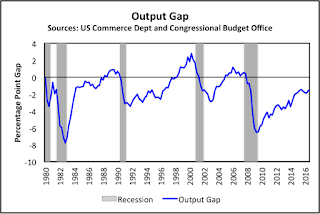Politics Isn’t About Friedman or Keynes Anymore
Gone are the days when the political right and left could be distinguished by competing theories: free market, monetarist, or Keynesian. Today, economic policy is mostly a grab bag from which policy interventions are found to address specific economic grievances. No overarching economic theory guides either party’s approach to policymaking. By the end of the 1990s all the talk was of the “Washington consensus,” an approach that argued prosperity and stability could be achieved via orthodox monetary and fiscal policies, alongside vigorous engagement in international trade. The Washington consensus, however, was never quite as widely fancied within the economics profession as it was amongst politicians. It is not that economists disagreed with the merits of independent central banks tasked with keeping inflation low, deregulation, or increased globalization. Rather, the economics profession noted that those pillars, while necessary for growth, shared prosperity, and stab...
